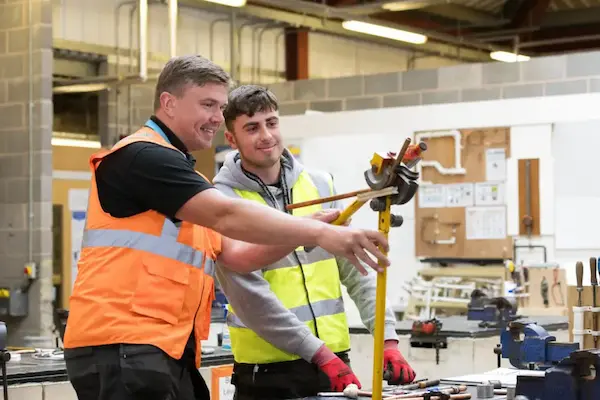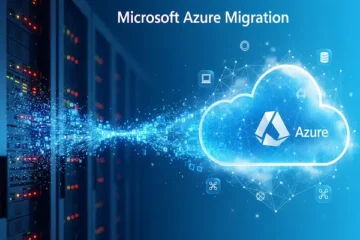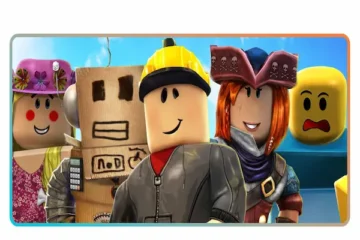Plumbing Engineering course | How apply for free
Discover how to apply for a Plumbing Engineering course for free.
Anúncios
Learn step-by-step how to enroll, the benefits, and the platforms offering these courses.
Step-by-Step Guide to Enroll in a Plumbing Engineering Course
If you’re passionate about plumbing and engineering and want to enter the field without spending a fortune, you’ve come to the right place.
A Plumbing Engineering course is an excellent way to kickstart your career and gain the skills needed to succeed in this essential field.
In this comprehensive guide, we’ll walk you through the steps you need to take to enroll in a Plumbing Engineering course for free, offering you an opportunity to develop expertise and prepare for a rewarding career.
The best part is that you can learn from the comfort of your home, with no need for physical attendance, and all at zero cost.
Let’s get started with the step-by-step process of enrolling in a Plumbing Engineering course online.
Step 1: Choose a Learning Platform
The first and most important step in enrolling in a Plumbing Engineering course is selecting the right online learning platform.
Numerous platforms offer free courses, but it’s essential to choose one that provides reliable, high-quality education from reputable institutions.
These platforms offer a variety of courses that cover the basics to advanced topics in plumbing engineering, ensuring that you can select the course that best fits your needs.
The following are some popular platforms where you can find Plumbing Engineering courses for free:
Coursera
Coursera partners with top universities and companies to offer high-quality courses.
While many courses are paid, you can often audit them for free, giving you access to all course materials without any cost.
Financial aid is available for those who wish to earn a certificate at the end of the course.
edX
edX offers free online courses from prestigious universities such as MIT, Harvard, and UC Berkeley.
Although you can access most course materials for free, a paid certificate option is available for those who want to earn recognition for their efforts.
Alison
Alison offers free online courses in many fields, including plumbing engineering.
Their courses are designed to give you the knowledge and skills you need to excel in the industry, with free access to all learning materials.
FutureLearn
FutureLearn provides a variety of online courses in plumbing and engineering.
Many of their courses are free to access, and they often offer opportunities to interact with peers and instructors, enhancing the learning experience.
Choosing the right platform will depend on your learning style, course offerings, and the level of certification you’re looking for.
Be sure to explore the available platforms and choose the one that aligns with your goals and interests.
Step 2: Search for Plumbing Engineering Course
Once you’ve chosen the platform, the next step is to search for the Plumbing Engineering course that suits your needs.
Many platforms offer specialized courses in different aspects of plumbing engineering, from the basics of plumbing systems to more advanced topics like fluid dynamics, water treatment, and waste management.
To begin your search, simply use the platform’s search function to type in “Plumbing Engineering.”
You may also find related terms like “Plumbing Systems,” “Water Supply Engineering,” or “Plumbing Design” that lead to relevant courses.
Be sure to carefully read the course descriptions to ensure the course covers the topics you’re interested in learning about.
It’s also helpful to filter your search by course duration, difficulty level (beginner, intermediate, or advanced), and any prerequisites needed for enrollment.
This will help you find a course that is suitable for your current knowledge and learning pace.
Step 3: Review Course Requirements
Before enrolling in any course, it’s important to understand the course’s prerequisites and requirements.
While many Plumbing Engineering courses are beginner-friendly and do not require prior knowledge, some courses may expect you to have basic knowledge of engineering or construction principles.
Reviewing the course requirements is key to ensuring that you are ready to start.
Here’s what you should look for when reviewing the course requirements:
- Prerequisites: Some courses may require you to have basic knowledge of general engineering concepts, fluid mechanics, or construction. If you’re a complete beginner, choose a course that is labeled “Introductory” or “Beginner.”
- Course Duration: Check how long the course will take to complete. Many online courses are self-paced, meaning you can finish them at your convenience, but others may have a fixed schedule.
- Certification Requirements: If you want to receive a certificate at the end of the course, make sure you understand the requirements for obtaining it. Some courses offer free access to course materials but require payment for certification.
By reviewing these factors, you can ensure that the course you choose aligns with your goals and capabilities.
Step 4: Create a Free Account
Before you can enroll in a course, you’ll need to create an account on the platform you’ve chosen.
The registration process is usually simple and involves providing basic information such as your name, email address, and a password.
Once registered, you’ll be able to track your progress, access your course materials, and engage with other learners.
Most platforms also allow you to save your progress, so you can pause and resume the course at any time.
This is especially useful if you’re balancing learning with work or other commitments.
If the platform offers financial aid or a certificate upon completion, be sure to fill out any necessary forms during the account creation process to ensure you are eligible.
Step 5: Enroll in the Course
Now that your account is set up, you’re ready to enroll in the course.
Simply browse the course catalog, find the Plumbing Engineering course you’ve chosen, and click the “Enroll” button.
Many platforms offer free courses, but some may charge a fee for certification.
If you’re only interested in learning and don’t need a certificate, you can typically audit the course for free, which gives you access to the course materials without the cost of the certification.
Enrollment is usually immediate, and you’ll gain access to the course materials as soon as you confirm your registration.
Step 6: Access Course Materials
Once enrolled, you’ll be able to access all the course materials, including video lectures, reading materials, quizzes, and assignments.
Depending on the platform, you may also have access to interactive features such as discussion forums, live webinars, or peer reviews.
It’s important to stay organized and keep track of deadlines (if any).
Some platforms allow you to download course materials for offline learning, which can be particularly useful if you need to study while on the go.
Don’t hesitate to reach out to course instructors or fellow students if you have questions or need assistance.
Many courses offer forums or chatrooms where you can connect with others and share insights.

What to Expect from a Plumbing Engineering Course
As you dive deeper into the course, you will gain valuable insights and practical skills that are essential for working in the field of plumbing engineering.
Here’s what you can expect as you progress through your course.
Key Topics Covered
A Plumbing Engineering course will cover a wide array of topics, ranging from basic plumbing systems to more complex concepts such as fluid mechanics and sustainable water systems.
Here are some common topics you’ll likely encounter in your course:
- Plumbing System Design: Learn the principles behind designing plumbing systems, including pipe sizing, water supply, drainage, and venting systems.
- Fluid Dynamics: Understand the movement of water through pipes, including pressure calculations and flow rates.
- Water Treatment: Gain knowledge about the various methods of water treatment, from filtration to disinfection, and how these processes ensure safe, clean water for buildings.
- Energy Efficiency: Explore energy-efficient plumbing systems that reduce water and energy consumption, helping to promote sustainability.
- Building Codes and Standards: Learn about local building codes and industry standards that must be followed when designing and installing plumbing systems.
- Troubleshooting and Maintenance: Gain practical skills in diagnosing and repairing plumbing issues, such as leaks, clogs, and water pressure problems.
These topics will provide you with a solid foundation in plumbing engineering, enabling you to tackle real-world plumbing challenges.
Self-Paced Learning
One of the greatest advantages of online courses is the flexibility they offer.
Most Plumbing Engineering courses are self-paced, meaning you can learn whenever and wherever you want.
This is particularly beneficial if you have a busy schedule and need to balance learning with work or other commitments.
Self-paced learning allows you to take the course at your own speed, so you can spend more time on challenging topics and breeze through sections that are easier for you.
You can also pause and resume your studies whenever it’s convenient, which makes it easier to manage your time.
Hands-On Projects and Simulations
Plumbing engineering is a hands-on field, and many online courses incorporate practical simulations and projects that allow you to apply what you’ve learned.
These activities are designed to simulate real-world scenarios, such as designing a plumbing system for a building or troubleshooting plumbing problems.
Through hands-on projects, you’ll gain valuable experience that you can use in your future career.
These projects may involve designing plumbing layouts, calculating pipe sizes, or simulating water flow through a system.
By completing these activities, you’ll be well-prepared to tackle similar tasks on the job.
Certification and Career Advancement
Upon completing a Plumbing Engineering course, you may be eligible to receive a certificate, which can be a valuable addition to your resume.
Many employers in the plumbing engineering field recognize certifications from reputable platforms, making you a more competitive candidate.
In addition to gaining skills and knowledge, earning a certificate can open doors for career advancement.
With a certification in plumbing engineering, you can pursue higher-paying job opportunities or take on more advanced projects.
Many plumbing engineers move into managerial roles or specialize in areas such as water treatment or sustainable design.
Where to Find Free Plumbing Engineering Courses
While there are several paid options available, many top platforms offer free Plumbing Engineering courses.
Here are some of the best places to find these courses:
Coursera
Coursera is one of the most popular online learning platforms and offers courses from top universities and companies.
While many courses are paid, you can audit them for free, gaining access to all the course materials without having to pay.
If you wish to earn a certificate, you can apply for financial aid or choose to pay for the certification.
edX
edX provides free courses from prestigious universities such as MIT and Harvard.
You can access most course materials for free, and if you want a certificate, you can pay for it. The platform also offers financial aid for eligible students.
Alison
Alison is another excellent platform that offers free online courses in plumbing engineering.
You can take these courses at your own pace and access all learning materials for free.
If you want to earn a certificate, Alison offers affordable options.
FutureLearn
FutureLearn offers free courses from leading universities and institutions.
Many of these courses focus on plumbing and engineering topics.
You can access the course materials for free, and there are options to pay for a certificate if you wish to have official recognition for completing the course.
Our Opinion About Plumbing Engineering Courses
In conclusion, taking a free Plumbing Engineering course is an excellent way to jumpstart your career in this field.
The flexibility of online learning, combined with the practical and theoretical content provided by these platforms, makes it accessible and affordable for anyone looking to learn.
Whether you’re starting your career or looking to advance your skills, Plumbing Engineering courses offer the knowledge and practical experience needed to succeed.
Earning a certificate can enhance your career prospects and help you stand out to employers in this growing industry.
With the range of free platforms available, there’s no reason to wait.
Enroll in a course today, and take your first step toward a rewarding career in plumbing engineering.





